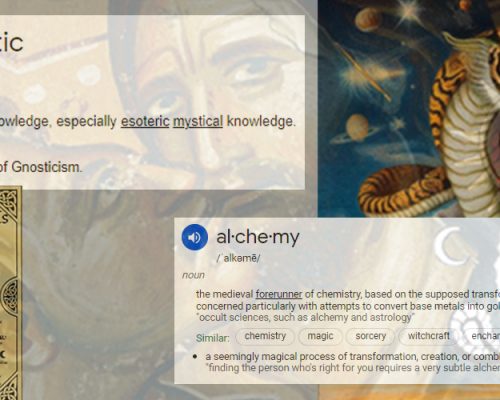Recently I was in written dialogue with someone who used WRT in caps a number of times.
At first I was skimming over this acronym since I would pause a moment and not be able to quickly figure out what it meant.
Visually, it closely resembles WTF so I found myself pausing to double-check I wasn’t having a dyslexic moment.
I finally looked it up and discovered it means “with reference to.”
Then it made sense to me.
This morning I am thinking about why this acronym was even necessary within the communications.
Simply put, it was because the communications were quite lengthy back and forth so there needed to be a way to reference within the next part of the dialogue some point or thing previously said to which the other was now responding.
__________
The Bible is quite a lengthy collection of different genres – literature such as poetry, song, historical storytelling, literal history and laws, prophetic writings and references and personal letters of both encouragement and correction.
I probably have missed something in there!
I know that for me, in terms of communications, knowing my audience or whom the listener is, individually or collectively, is important and sometimes difficult to connect and mesh with due to personalities, world views, communication style differences or sometimes simply, lack of common reference points.
Catching someone up on the past reference points to help them understand current situations and references, can be daunting, if not impossible in some cases.
Someone once told me they loved my wrtings, they got them or it made them laugh or otherwise feel or think certain things or learn and observe certain things (paraphrase and implication) but that the references were so “personal.” Meaning, that not everyone would respond in the same way because they just didn’t have either the same personal vantage or reference points, or knowledge and understanding of mine.
“He was despised and rejected by mankind,
a man of suffering, and familiar with pain.
Like one from whom people hide their faces
he was despised, and we held him in low esteem.”
Isaiah 53:3
(WRT…)
On the liturgical calendar, today marks the beginning of the The Paschal Triduum – the central-most-God-themed event on the Christian calendar.
Much of biblical literature and texts can be hard to fully grasp since they are layered with other references…
If we don’t know (or understand) the original reference, the current quoting or situation loses some of its meaning and power.
I’ve been going through the book of Job recently and also thinking about Isaiah 53, and more.
Throughout the life and ministry of Jesus he often did the “WRT” – and in particular, the events beginning with the Last Supper, the Betrayal, the Cross and the Resurrection are laced with “with reference to’s.”
I have also been thinking about life themes in various ways – not simply positivity mottos or goals – but life themes in terms of challenges, or even sensitivities. In the Old Testament, it seems that even names are given (or changed) to certain people in connection with their life theme.
For example, the name Jacob mean ““supplanter,” which is often interpreted as someone who seizes, circumvents, or usurps.” Variants of this name are James.
The name Leah means “delicate or weary.”
The name Abraham means “Father Of Nations.”
The name Sarah means “noblewoman or princess.”
The name Jonathan means “God has given.”
The name Zachary means “the Lord has remembered.”
The name Esther means “star.”
The name Jesus means “to deliver; to rescue.”
What does your name mean, and who gave it to you?
My father named me. My name is Eileen, and the meaning of this name if one looks it up seems more unclear – traditionally I understand it as a derivitive of Helen, Celtic in original, meaning, “Light.” Although searches bring up other meanings such as Beautiful Bird, connecting it to Evelyn.
Surely as there is increased cultural intermixing, the evolution of names and their meanings undergo some types of changes, at times. And then, there is the beautiful tradition especially among African Americans of creating unique names for a child, surely with some meaning or purpose.
“Eileen is an Anglicized form of the Gaelic Eibhlin or Aibhilin, which is technically a form of to Evelyn/Aveline, but is also sometimes considered part of the Helen family of names. It was quite popular in the early part of the twentieth century.”
~ source: “nameberry”
From the Bible we might define the life theme(s) of Jesus in a number of ways.
The reference I most personally start with is that identified in Isaiah 53:
“he was a man of sorrows and acquainted with suffering.”
This is a central lens from which I view all else and probably that upon which I most draw strength, comfort and resilience.
In terms of Lenten observations I think this year in particular has held a number of deep things I have experienced in preparation for Resurrection Sunday celebration.
Without going to the Cross, the suffering, the shame and more, there is no basis for upbeat announcements that “He has risen.”
Personally speaking, I believe the more we can look at and embrace our own sufferings, the more deeply we can embrace not only Resurrection and Resilience, but the struggle for Resurrection and Resilience.
As I see it, that struggle is often quite, quite messy…
Somewhat oddly, Isaiah 53 speaks of the Messiah as “Like one from whom people hide their faces” and in the book of Job, in his diatribe, asks “does honest speech offend you?” (I have a particular translation on Audible I have been listening to and made this notation, but I cannot seem to locate the exact reference in more common translations through Google search! The audiobook/translation I have is The Book of Job by Stephen Mitchell.
Neither our personal life nor our Christian life (which actually in my view is one) can be categorized as a “once and done activity” of any sort.
As in nature, we go through season upon season of fiery ordeals, griefs and sorrows. Even within these times, we struggle and grow both inwardly and outwardly in moments of joy and resilience, but this is not a permanent condition in this life just as sorrow, also, is not a permanent condition in this life.
There is a quotation by CS Lewis that I particularly like that seems to address this idea.
“One never meets just Cancer, or War,
or Unhappiness (or Happiness).
One only meets each hour or moment that comes.
All manner of ups and downs.
Many bad spots in our best times,
many good ones in our worst.
One never gets the total impact of what we call ‘the thing itself’.
But we call it wrongly.
The thing itself is simply all these ups and downs:
the rest is a name or an idea.”
― C. S. Lewis
Thank You For Reading
Please Feel Free To Express Your Thoughts Below



